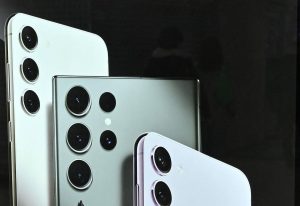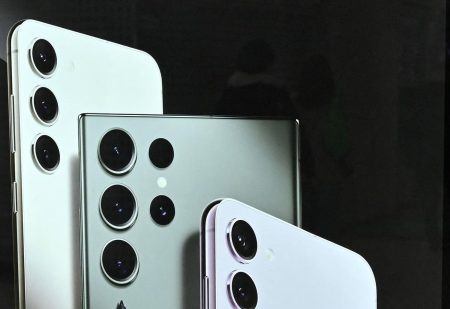Following the launch of RØDE’s new 5th Generation of the best-selling NT1 studio microphone, the Australian premium audio brand has unveiled its new NT1 Signature Series condenser microphone.
This version of RØDE’s iconic studio condenser microphone is the latest model of a design that has sold more than six million units since it was launched three decades ago. During that time, the RØDE NT1 has established itself as a firm favorite with everyone from bedroom musicians to studio professionals.
Recently, RØDE launched the NT1 5th Generation model, which saw some major improvements to the microphone’s condenser capsule and the addition of a USB interface and an XLR connector. The USB circuitry included 32-bit float digital output that enabled users to adjust gain levels post-processing. The mic also had onboard DSP for shaping the sound with a veritable toolbox of digital processing effects.
This new Signature Series of the RØDE NT1 has all the physical benefits of the NT1 5th Generation but without the USB interface. The NT1 is a strictly analog mic with XLR and will be available in limited-edition colors, including red, green, purple, pink and blue.
The NT1 Signature Series features the same warm and silky character that has defined the NT1 for over 30 years. The capsule inside is RØDE’s HF6, a 1-inch capsule engineered to sub-micron tolerances to ensure consistency in its tonality and frequency response. The capsule is also internally shock-mounted to reduce the effect of vibrations.
I’ve had a chance to try the NT1 Signature Series and it certainly has the same rich and warm bass of the 5th Generation model. Even when standing slightly back from the mic, this side-address mode has plenty of detail in the midrange, while the top end has the same smooth response that seems particularly resistant to sibilance.
The beauty of the new NT1 Signature Series is the wide range of applications it’s suitable for. Not only does it make a great for podcasting, but it’s also a perfect general-purpose tool for recording acoustic guitars, percussion, electric guitar and piano.
The cardioid polar pattern of the NT1 Signature Series is good at rejecting quite a lot of background noise. It’s not as good as a dynamic mic in that respect, but it’s better than many condensers. That said, it does benefit from being used in an acoustically treated space, as it can pick up the noise and nuance of a room.
The new mic displays a smooth frequency response and is easy to drive. The enhanced circuitry offers high SPL handling, making it a flexible studio performer. The standout feature is the low self-noise level at just 4dBA, making it the world’s quietest studio condenser microphone.
Available in standard black, the NT1 Signature Series will also be available in a range of colors, including red, green, purple, pink and blue. This is the first time RØDE has offered the NT1 in any finish other than black. The colored versions will be available in limited quantities directly from RØDE.
I like RØDE products because the company bothers to make the NT1 at its manufacturing facilities in Sydney. We need to see more of this onshoring of manufacturing to keep vital skills alive. RØDE is also offering an industry-leading 10-year warranty with the NT1 Signature Series and each microphone ships with a studio-grade shock mount, pop filter, and a premium-grade XLR cable.
Verdict: While I loved the idea of the RØDE NT1 with a USB interface and 32-bit float output, I prefer to use microphones with interfaces like the Focusrite Scarlett 2i2 Gen 4 or even the RØDECaster Pro, where I can add processing or plug-ins. It’s a great idea to make an XLR-only version of the 5th Generation NT1 for people who don’t want or need the USB interface. The result is an even better version of the NT1 than previous generations. It’s also good to see RØDE offering a few more colors. For a while, RØDE was in danger of falling into the Henry Ford trap of offering “any color you like… as long as it’s black.” Highly recommended.
Pricing & Availability: The RØDE NT1 Signature Series is available now and costs $159.
More info: www.rode.com
Tech Specs:
- Acoustic principle: Pressure gradient.
- Active electronics: JFET impedance converter with bipolar output buffer.
- Capsule: 1 inch.
- Polar pattern: Cardioid
- Address type: Side.
- Frequency range: 20Hz – 20kHz.
- Output impedance: 100Ω.
- Maximum SPL: 142 dB SPL.
- Equivalent noise (A-Weighted): 4dBA.
- Sensitivity: -32dB re 1 Volt/Pascal (25mV @ 94dB SPL) +/- 2dB @ 1kHz.
- Analog power requirements: P48.
- Analog output connection: 3-pin XLR.
Read the full article here









